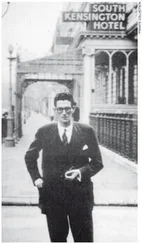On the same day, Private Digby and the others found themselves on the banks of the River Escaut, a tributary of the Somme, with the sounds of battle clearly audible. Their situation was by now becoming desperate. Thorpe was so weak he could hardly walk and a wound to Hardy’s arm showed signs of infection. The soldiers were soaked, disorientated and beginning to suffer from malnutrition. They stood staring at the river; swollen by overnight rain, too fast flowing to cross. They would have to wait until the river had subsided, Digby concluded. ‘We were trapped, and took refuge in a wood, in the quarry at Hargival, a little way north of the river.’
Surrender must, at some stage, have entered their minds, offering at least the chance to eat and then sleep without fear of being woken by a bayonet in the stomach. For days they had eaten nothing but wild fruit and raw field crops, sleeping in ditches and under briars. Digby had now been on the run for more than three weeks, yet he was back almost to the point where he had started, with Villeret to the south, the British and French armies just a few miles beyond that, and the German army massing in between.
As the group waited frantically in the shelter of the quarry, a few hundred yards away a woman was quietly tending her horse.
Jeanne Magniez, the thirty-three-year-old mistress of Hargival, was not conventionally beautiful, being heavy-boned and masculine in dress, but she left many dazed by the force of her personality. She loved her husband, Georges; she loved her Afghan hound; she loved her home, the charming estate lying some four miles north of Villeret (and not to be confused with neighbouring Hargicourt) with its forests and lush fields grazed by Flemish cattle and Georges’s herd of prize sheep; she loved the warm walled garden and the orchards sweeping down to the river. But most of all, Jeanne Magniez loved horses. ‘For her, human beings were divided into people who rode and people who did not; horses were sacred’, and she treated people as she treated her horses, with gentle firmness, secure in the knowledge that there was not one, of either species, she could not render docile. Her vast photograph album was a precise index of her affections: there were several photographs of her moustachioed husband, scores showing the various dogs she had known, and horse pictures by the hundred.
From earliest childhood Jeanne had spent at least a part of every day on horseback, and her closest human friendships had been made in the saddle, with Georges, and with her friend and confidante Anne de Becquevort, whose father ran the brasserie in Vendhuile. Anne had been born with a displaced hip, and when she reached the age of fifteen her father was advised by a local doctor that she must ride side-saddle in order to rectify the problem. It was arranged that Anne would ride with Jeanne. The exercise did nothing for Mademoiselle de Becquevort’s hip, but made the two young women into the closest of friends. They became a familiar sight of the locality, trotting down the wooded lanes around Hargival, hacking across the plateau above Villeret, or watering their horses at the village trough in Le Câtelet.
Jeanne Delacourt was twenty-eight when she married Georges Magniez in 1909, a match of love but also of dynastic logic, for the Delacourts of Gouy and the Magniez family of Hargival were joint pillars of the rural gentry, hardly as rich as François Theillier with his industrial money and flashy tastes, but in an indefinable way grander. After five years of marriage, there was still no sign of any children in the Magniez household, but if Jeanne minded, she was so busy with her dogs, home, husband and horses that nobody noticed. Local gossips thought that Jeanne was a ‘racy’ type; she smoked cigarettes, drove an automobile without gloves on, and treated everybody with exactly the same direct, penetrating and faintly lofty manner, usually from the saddle. She was tall and striking, whereas her husband was small and shy, with a diffident manner that belied a passionately romantic soul. There were many, in fact, who said that Jeanne was the real squire of Hargival.
Georges Magniez had enlisted as an officer in the 41st Artillery Regiment on the eve of war, and left Hargival for the front within hours of mobilisation. Georges pledged to write and Jeanne promised to exercise Flirt, his magnificent thoroughbred, whom they had nicknamed ‘Son of Steel’. As the names of their favourite animals suggest, Jeanne and her husband were enthusiastic Anglophiles. Jeanne had heard the first gunfire over at Le Câtelet as the German troops arrived; she had watched the refugees fleeing south, and the weary columns of retreating British infantry and the wagons loaded with wounded men. From Vendhuile, the nearest village to the Hargival estate, her servants brought horrific tales of German brutality: the shooting of Oscar Dupuis and Madame Lemaire-Liénard and the way the ‘notables’ of Le Câtelet had been taken hostage, beaten and mistreated. The equinomaniac Jeanne was particularly outraged to learn that horses requisitioned by the French government at the outbreak of war and gathered at Le Câtelet, including several from the stables of Hargival, had since been appropriated by the enemy. Capricious and undefined, the war seemed to seep into every corner, and yet it was nowhere.
On 17 September, on the road adjacent to the Hargival estate, a German staff car was ambushed by a squad of French cavalrymen, led by one Lieutenant Bourbon-Chalus, and four Germans were killed. On the plateau where the Magniez sheep grazed above Hargival, German machine-gunners exchanged fire with a patrol of French chasseurs on the valley side. But even as the war raged, a semblance of normal life continued. A woman from Vendhuile trudged up the hill with drinks for the French soldiers, as if at a sporting event. Nearby, a lone farm worker, ‘taking advantage of the fine weather’, continued his rhythmic scything to the echo of heavy gunfire: ‘The battle and the harvest carried on side by side.’
Anyone on horseback ran the risk of being mistaken for a soldier and shot by one side or the other, and the more cautious inhabitants stayed indoors. Jeanne Magniez, undaunted, was out on her daily ride on Flirt when she discovered the British soldiers huddled miserably in the woods on her property. ‘It couldn’t really be called a hiding place, for the quarry was virtually open to the sky,’ she later recorded. She cantered back to the mansion and returned within an hour, bringing blankets and food. Not for the last time, the men hailed Jeanne as their ‘guardian angel’.
‘For several days I brought them provisions, since they had not a scrap to eat, as I tried to work out how to get them to Péronne. I searched in vain for a way through,’ she wrote. On 23 September Péronne was finally retaken by German troops and ‘the door was slammed shut’.
That night Villeret, east of the solidifying line, saw its first massive influx of German soldiery in the formidable shape of the 8th Hussars Cavalry Regiment and a squad of Imperial Guards. The soldiers stayed only one night before marching on to the west, but it must have seemed as if another hoard had descended. On Emile Foulon’s property alone, seven officers moved into the tidy, well-appointed bedrooms, while 280 soldiers stretched out in his barns and sixty horses were turned loose in his fields. Before leaving the Germans inspected every cellar, ostensibly in search of enemy soldiers, but in reality to pilfer anything available. The 8th Hussars had a long history of fighting the French, having done so with enthusiasm in both 1815 and 1870, so they knew the rules: three carts were piled high with Villeret cloth and rumbled away to the east, towards Germany. ‘Pillage took precedence over everything else,’ the villagers observed grimly.
Читать дальше












